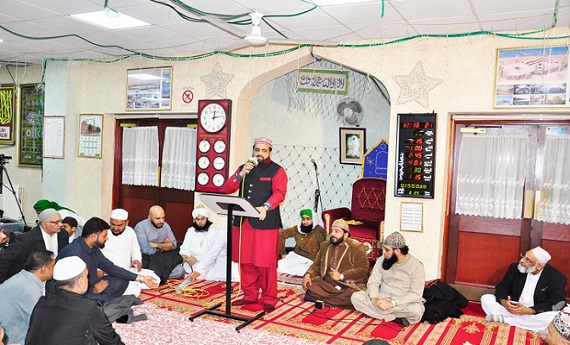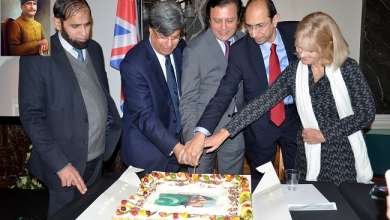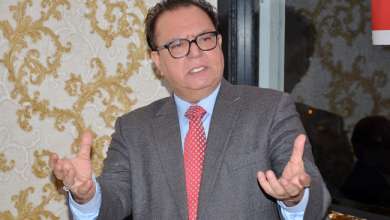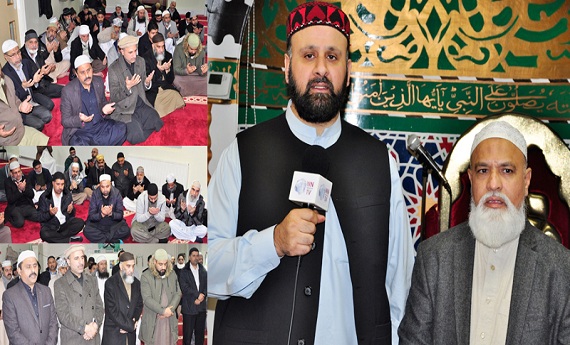British Bangladeshi & Kashmiris are united against fascist policies of Modi against Indian minorities and the people of IOJK
Initiative to Impose Sanctions on Human Rights Violators: British Minister
London: A seminar on the rise of extreme nationalism in South Asia and violations of human rights was held at Committee Room 12 of the House of Commons on 10 March 2020 organised by British Bangladeshi Community Alliance.
The seminar was chaired and hosted by Christian Wakeford MP and conducted by the Patron of the Organisation former Burnley Borough Councillor Mr. Mozaquir Ali.
Secretary of the Organisation Mr Foyzun Nur welcomed the guests with his opening speech. Barrister Afzal Syed-Ali as president of BBCA presented a brief on the theme. He said these incidents of human rights violations do not happen suddenly; it follows at the end of a long process of normalisation’s through social structure and political system which allows for the permissive circumstances for these violations to exist. During times of rise of extreme nationalism the state structure is abused for this purpose and the most common example is the abuse of the judiciary for these purposes.
Dr Imtiaz Khan, an associate professor of data science at Cardiff University, showed how social media helps make the aspects of rights violations acceptable subject of dissuasion’s in societal space.
Lord Qurban Hussian in his speech said he went to Burma some 25 years ago and saw that anti-Muslim incitements and racial tensions were already socially acceptable then and no one paid any attention to these. The consequences of that indifference is the near perfect ethnic cleansing and genocide against the Rohingya people. Europe played the same role about the Nazis in 1920-30 without realising what were to unfold few years after. Motivations of these actors of violations in South Asia cannot be ignored and voice must be raised and actions must be taken.
President Tehreek e Kashmir UK Fahim Kyani said that Modi is a symbol of extreme nationalism in south Asia. Modi is a part of RSS and RSS believe on Hindutva ideology which means that India is for Hindus. RSS wrote in their literature in early 1930 that Hitler is our ideal leader. Second supreme Leader of RSS idolised the Holocaust and thought that it to be an effective way to deal with minorities. Kayani Further said that Kashmir is under Indian siege for last seven months. Modi has adopted the policies of dark ages when kings used to put cities under siege by cutting off their supplies for to make them bow down In front of their terms and conditions .same like Modi wants the people of Indian occupied Jammu and Kashmir to bow down In front of his hindutava ideology and give up their demand for right to self determination recognised by the United Nations and promised by the fore fathers of India. After all this oppression Kashmiris are determined to get their fundamental right of self determination at any cost.
During the open session when statements from victims of torture are invited Bangladeshi former squadron leader Wahidunnabi raised the issue of continuous imprisonment of South Asia’s oldest political prisoner former Bangladeshi prime minister Mrs Zia.
Syed Mamnun Morshed, a grandson of Sher-e-Bangla Fazlul Haq, discussed the RSS political theory and mentioned Indian Prime Minister Narendra Modi is a life member of RSS that wants India as a Muslim free land with a clear genocidal mental structure. The present Citizenship Act in India is the product of that desire.
Shamsul Alam Liton presented an analysis of the risks faced by broadcast journalists and civil rights activists and the organised terror they faced in line of employment.
Among the notable attendees were Shadow minister Afzal Khan MP, Shadow minister Kate Holland MP, youngest MP in Conservative party’s history Sara Britcliffe, British-Bangladeshi MP of Poplar-Limehouse Apsana Begum,
former MP Grahame Jones, county councillor Peter Britcliffe and conservative group leader councillor Andrew Newhouse. The common tone of their speeches was that the recent events in South Asia are disconcerting for the international community because the major incidents of violations of human rights were the results of similar mental and ideological frame that drove the anti-Muslim violence in Delhi.
The biggest announcement of the day came from Andrew Stephenson MP, Minsiter for Europe’s largest construction project HS2, that a policy is now under active consideration to introduce legislation in the next legislative session to have a system of addressing human rights violations issues by way of ‘Human rights Sanctions’ which will target individual actors and enablers of violations in government or outside of it who are connected to formal, informal structures of human rights violations. It will take form of, and not exhaustively, international travel ban, financial services ban and ability to work for international organisations. Minister said it would be a tremendous achievement if these could be done instead of sanctioning states and governments. British Bangladeshi Community Alliance has been promoting such a legislation for a while.
Treasurer of British Bangladeshi Community Alliance Mr Abidul Islam Arju thanked the attending guests.





